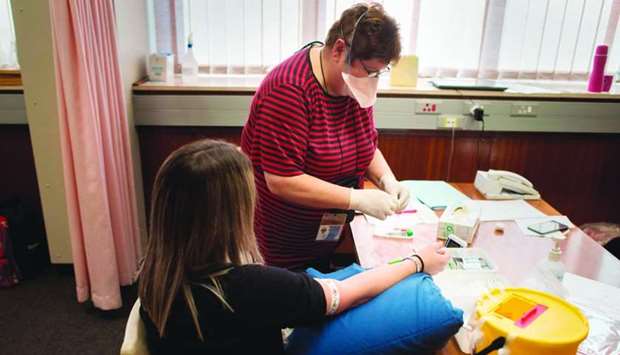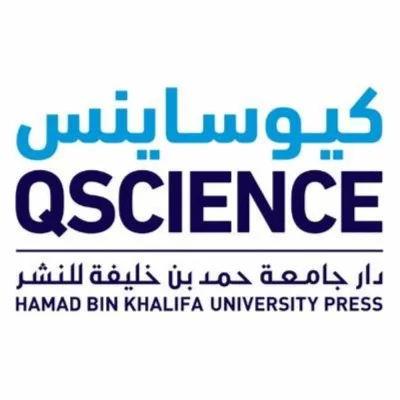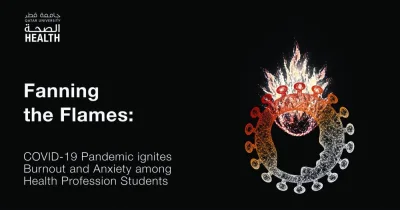An international pledging conference raised 7.4 bn euros ($8.07bn) Monday to help develop a coronavirus vaccine as well as tests and treatments, launching collective efforts to treat the deadly virus globally.
"This was a powerful and inspiring demonstration of global solidarity," said World Health Organisation (WHO) chief Tedros Adhanom Ghebreyesus, while stressing that medical tools must be made available to poor as well as rich countries.
"None of us are safe until all of us are safe," he told an online press conference from Geneva.
The fundraiser, hosted by the European Commission in Brussels, almost met its 7.5-billion-euro target, while surpassing the equivalent 8-billion-dollar goal.
"However, this is only the beginning," commission president Ursula von der Leyen said following the three-hour donation session with countries from around the world."The pledging marathon will continue," she added.
The European Union's executive contributed 1.4 bn euros alone — 1 bn euros in grants and 400 mn euros in loan guarantees — on top of EU member state contributions.
"The scope of our response must match the scope of the crisis," said European Council President Charles Michel."These are dark days, but they are also days that reveal our humanity," he added.
The money is to go towards developing a coronavirus vaccine for global use, as well as tests and treatments aimed at defeating the deadly virus.
It was not immediately clear, however, how much of Monday's pledges constituted new funding.
A further donor conference is due in late May, UN Secretary General Antonio Guterres announced, noting that "five times Monday's target" would probably be needed overall.
A key aim of the conference was to bring countries together to fight Covid-19, the respiratory disease caused by coronavirus, rather than see them compete in a race to develop a vaccine that is only selectively available.
"So long as Covid-19 is somewhere, Covid-19 can spread anywhere,"
said Melinda Gates, of the Bill and Melinda Gates Foundation."The pandemic won't end until people everywhere can be immunised against it."
The funding initiative is co-chaired by countries including Germany, France, Britain, Italy, Japan and current G20 chair Saudi Arabia.
"Faced with Covid-19, 'everyone for themselves' would be a major mistake," French President Emmanuel Macron warned, adding, "We can only come out the other side of this together."
"It's humanity against the virus," said British Prime Minister Boris Johnson, who recently recovered from Covid-19.
German Chancellor Angela Merkel welcomed the conference as a
"very important signal" at a time when multilateral cooperation is not always optimal.
One notable absence from the event was the United States.
A senior US government official stressed that Washington supported the pledging effort and is leading international efforts to defeat the virus.
Washington has organized its own project to develop a coronavirus vaccine, dubbed "Operation Warp Speed" — raising concerns in Europe that this would primarily benefit the US and not the rest of the world.
EU contributions totalled more than 4 bn euros, von der Leyen said.
This includes 525 mn euros from Germany, 500 mn euros from France and 140 mn euros from Italy.
Meanwhile, Canada announced a contribution of $850mn, alongside $500mn from Saudi Arabia, $482 from Britain, $1.3 mn from South Africa and $60 mn from Israel, among others.
Money also came from healthcare charities, global financial institutions and even pop icon Madonna, who pitched in $1 mn.
The funds are to go mainly to established international health organizations and research networks, so as to develop a vaccine and effective treatment as quickly as possible and make them universally available at affordable prices.
"None of us are safe until all of us are safe," he told an online press conference from Geneva.
The fundraiser, hosted by the European Commission in Brussels, almost met its 7.5-billion-euro target, while surpassing the equivalent 8-billion-dollar goal.
"However, this is only the beginning," commission president Ursula von der Leyen said following the three-hour donation session with countries from around the world."The pledging marathon will continue," she added.
The European Union's executive contributed 1.4 bn euros alone — 1 bn euros in grants and 400 mn euros in loan guarantees — on top of EU member state contributions.
"The scope of our response must match the scope of the crisis," said European Council President Charles Michel."These are dark days, but they are also days that reveal our humanity," he added.
The money is to go towards developing a coronavirus vaccine for global use, as well as tests and treatments aimed at defeating the deadly virus.
It was not immediately clear, however, how much of Monday's pledges constituted new funding.
A further donor conference is due in late May, UN Secretary General Antonio Guterres announced, noting that "five times Monday's target" would probably be needed overall.
A key aim of the conference was to bring countries together to fight Covid-19, the respiratory disease caused by coronavirus, rather than see them compete in a race to develop a vaccine that is only selectively available.
"So long as Covid-19 is somewhere, Covid-19 can spread anywhere,"
said Melinda Gates, of the Bill and Melinda Gates Foundation."The pandemic won't end until people everywhere can be immunised against it."
The funding initiative is co-chaired by countries including Germany, France, Britain, Italy, Japan and current G20 chair Saudi Arabia.
"Faced with Covid-19, 'everyone for themselves' would be a major mistake," French President Emmanuel Macron warned, adding, "We can only come out the other side of this together."
"It's humanity against the virus," said British Prime Minister Boris Johnson, who recently recovered from Covid-19.
German Chancellor Angela Merkel welcomed the conference as a
"very important signal" at a time when multilateral cooperation is not always optimal.
One notable absence from the event was the United States.
A senior US government official stressed that Washington supported the pledging effort and is leading international efforts to defeat the virus.
Washington has organized its own project to develop a coronavirus vaccine, dubbed "Operation Warp Speed" — raising concerns in Europe that this would primarily benefit the US and not the rest of the world.
EU contributions totalled more than 4 bn euros, von der Leyen said.
This includes 525 mn euros from Germany, 500 mn euros from France and 140 mn euros from Italy.
Meanwhile, Canada announced a contribution of $850mn, alongside $500mn from Saudi Arabia, $482 from Britain, $1.3 mn from South Africa and $60 mn from Israel, among others.
Money also came from healthcare charities, global financial institutions and even pop icon Madonna, who pitched in $1 mn.
The funds are to go mainly to established international health organizations and research networks, so as to develop a vaccine and effective treatment as quickly as possible and make them universally available at affordable prices.



